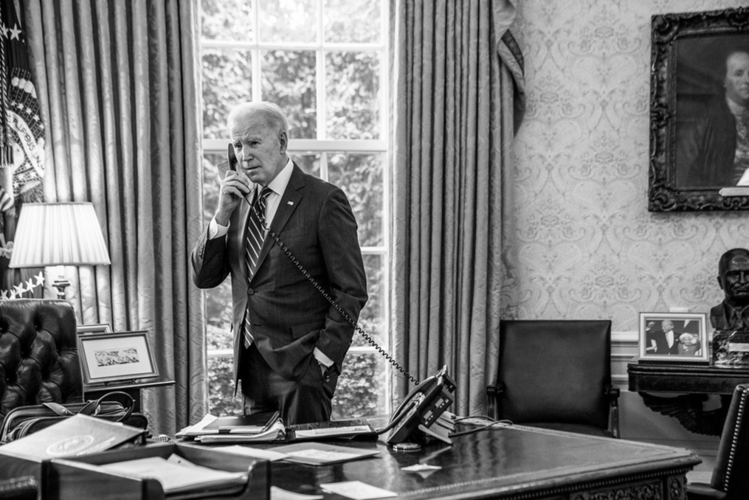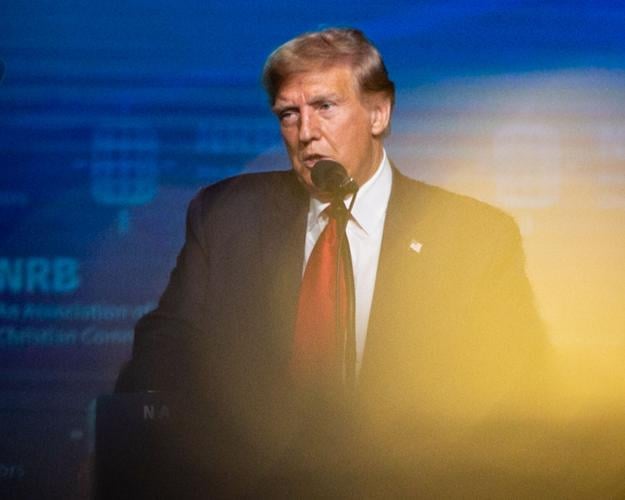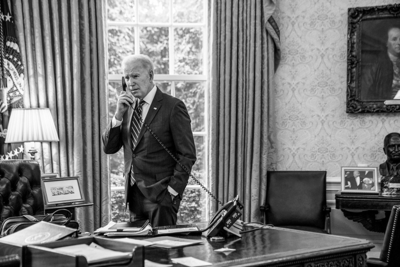Tennessee’s Democratic and Republican delegations are now set ahead of national conventions this summer, where each party is expected to formally nominate presidential candidates Joe Biden and Donald Trump. Democrats locked in final personnel at an April 27 executive committee meeting. Republican delegates appeared on March’s Super Tuesday ballot and were approved by state leadership earlier this month.
Davidson County Democrats include Mayor Freddie O’Connell, state Reps. Vincent Dixie and Harold Love (both of Nashville) and Metro Nashville Public Schools board member Freda Player. Saturday’s slate had previously been submitted to, and approved by, the Biden presidential campaign, making the party vote almost entirely procedural. Republican delegates include state Reps. Ron Gant (of Piperton) and Clay Doggett (of Pulaski), perennial candidate Michelle Foreman and Chad Blackburn, son of U.S. Sen. Marsha Blackburn. Party officials, donors and operatives help fill out the rest of both rosters, which distill the state’s political profile into a snapshot of a few dozen people. Each grouping often features outgoing standbys, like former Tennessee Democratic Party chair and fundraiser Chip Forrester, as well as young partisan enthusiasts, like Tennessee Young Republican Chair Stevie Giorno.
Each party follows its own bureaucratic process to select and approve delegates. A major difference is Republicans’ decision to put names directly to voters on the primary ballot. Democrats decide most delegates via county-by-county caucusing. The next-biggest category, at-large delegates, flows from national campaigns, who receive names from the state party, vet each candidate and return a preferred slate for state party approval. At the conventions — Milwaukee in July for Republicans, Chicago in August for Democrats — chosen members pack into arenas with delegates from every state to cast official nominating ballots that seal party nominees. Each party binds delegates to candidates before the convention, leaving little room for surprises. No major party has seen a contested convention, in which no candidate receives a clear majority, since Democrats advanced Hubert Humphrey at a bitter and violent 1968 meeting in Chicago.

Donald Trump at a fundraiser in Nashville, February 2024
Several categories of delegates compose the Democrats’ 70-person team. The party assigns a delegate count to each congressional district proportional to that district’s share of the statewide Democratic vote — summing 41 total, chosen via an enumerated county selection process. Add in 14 at-large delegates drawn from party hopefuls and vetted by the Biden campaign, eight more “pledged party leader and elected official” (PLEO) delegates, and seven “automatic delegates,” who include party leadership and national figures like Al Gore and U.S. Rep. Steve Cohen of Memphis. O’Connell joins the delegation as a PLEO alongside Memphis mayor Paul Young and Knoxville Mayor Indya Kincannon. Additional guidelines encourage identity representation.
“There are goals for Black participation, Hispanic participation, AAPI participation, LGBTQ people, and youth, and the delegation must be balanced between men and women, within one person,” says Forrester, who was elected Saturday as an at-large member. “Once you come out of the district level, you have to look at the slots that you have to fill to ensure you meet the goals of our plan so that we’re seated as a delegation in Chicago.”
Forrester frequently coordinates fundraisers in Nashville for national Democrats and was recently tapped as a regional co-chair on Biden’s campaign fundraising committee. The delegate selection process, he says, includes lots of back-and-forth between Biden’s political director Alana Mounce and the TNDP that offers a view into campaign priorities.
Indicted former president rails against ‘the communists and the freaks’ at Christian media convention
“The campaign has certain objectives — one that was really obvious was a strong labor perspective,” says Forrester, who plans to step back from politics after November. "Having Vonda McDaniel as an at-large delegate is a strong and obvious way to show that. They also want a strong showing of younger people. I had talked to Alana, the delegate tracker, months ago. It’s my last hurrah, and I’m on the Biden financial committee, so they included me.”
Republicans endured a brief kerfuffle over party bona fides before advancing their own slate of candidates, which includes 19-year-old Belmont student Mya Conrad. She secured a spot in Milwaukee with 206,596 votes on the Super Tuesday ballot, enough to best Republican giants like U.S. Rep. John Rose and longtime conservative operative Rick Williams. She says she was inspired to get into politics by her father, a retired Navy SEAL, and supports former President Donald Trump because of his positions on immigration, foreign policy and economic policy.
“In 2016, I was 12, sitting in front of the TV watching Fox News, being inspired by all of Trump’s ideas,” says Conrad, secretary of the Tennessee College Republicans. “I would just sit there — my parents didn’t tell me what to think — watching him do the debates before anyone knew he was going to win. It was a very cool moment when he ended up winning in 2016. That’s when I was bitten by the political bug.”








